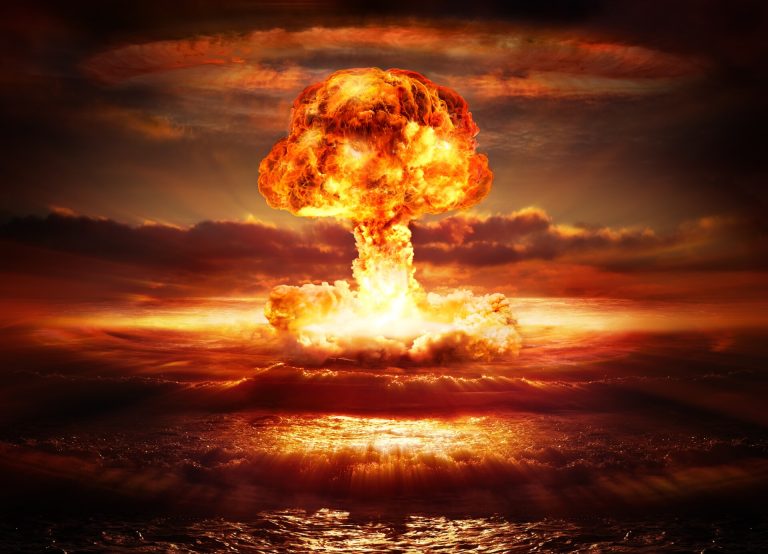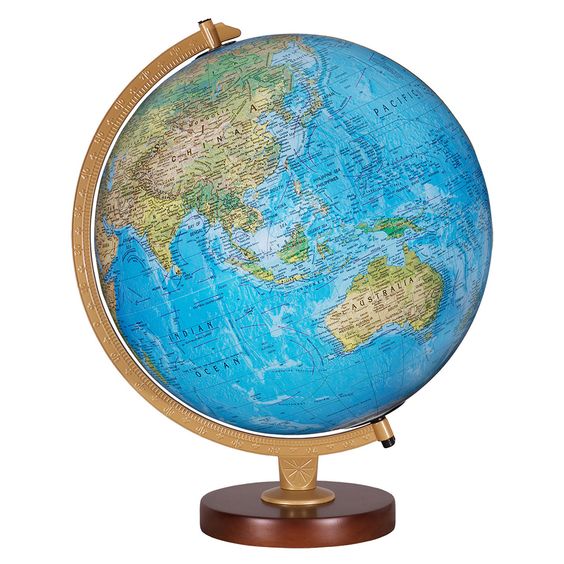
If one nuclear power changes their rules then the others have to reconsider theirs.
By Tom Arms
Putin has rewritten the nuclear playbook and the world is a more dangerous place for it.
The reason? Because if one nuclear power changes their rules then the others have to reconsider theirs, and Putin has changed the rule book to make the use of nukes more likely.
Nuclear weapons in the past have been classified as a defensive weapon. Their purpose was to deter an enemy attack rather than to launch one.
Some countries—mainly China and India—have adopted a “No First Use” policy which means they will only use their nuclear weapons in response to a nuclear attack from another power. Beijing has a proposed a No First Use agreement with the US and been rejected.
The US, UK and France (the three nuclear NATO countries) have gone for the “Flexible Response” doctrine which means they will fire their missiles if faced with losing in the face of an overwhelming conventional weapons attack. This is more or less the policy of Pakistan, Israel (which refuses to admit to ownership of a nuclear arsenal) and even North Korea.
Barack Obama considered switching to a No First Use policy but was talked out of it by European allies who feared that it left them vulnerable to a conventional weapons attack from the large Russian army.
Soviet leader Leonid Brezhnev in 1982 pledged No First Use. The sincerity of the promise was questioned at the time and it was dropped in 1993 by the Russian successor state. Boris Yeltsin felt at the time that the deterioration of conventional weapons dictated greater reliance on the nuclear arsenal.
Then in 2020 came the Russian Presidential Executive Order on Nuclear Deterrence which made it clear that Russia reserved the right to use nuclear weapons to protect what it decided was its territory. This obviously includes the bits of Ukraine which it has annexed since 2014.
Putin has turned his nuclear arsenal from a purely defensive weapon into an offensive weapon by threatening to use them as part of a conventional weapons war for territorial gain.
He doesn’t even have to use the weapons. The threat of use can be enough to either force Ukrainian capitulation or territorial concessions or deter NATO from supplying military and economic aid. It has already successfully deterred the Western Alliance from sending troops.
Of course, Putin’s veiled and unveiled threats could be a giant bluff. As any poker player will tell you, that doesn’t matter if the bluff works.
It may be argued that the existence of nuclear weapons an implied threat since Hiroshima. Yes, but Putin has made it explicit and in doing so moved the hands of the Doomsday Clock that much closer to midnight.
If Russia comes out ahead of the game in Ukraine then Putin has opened the door to other nuclear powers using their conventional forces backed up by the threat of nuclear attack if the conventional option fails. These include North Korea and, probably in the near future, Iran.
That is why this week’s G20 summit in Bali condemned not only the use of nuclear weapons but also their “threatened use.”
Two of the key signatories of the summit communique (which also deplored Russia’s invasion of Ukraine) were China and India. They are important backers because their support for the communqiue implicitly reinforces their commitment to a No First Use policy and moves them towards the Western camp in the Ukraine War.
Xi Jinping has clearly made his concerns about the Russian nuclear rhetoric known to Putin. Otherwise, he would not have signed the communique or denounced the threatened use of nuclear weapons when he met last week with German Chancellor Olof Scholz.
Chinese pressure could persuade the Russian leader to scale down the threats. But the words have been spoken. The policy has been changed. Putin has released a new version of the nuclear genii. It is, however, just possible to stuff it back into the lamp. But to do so requires the defeat of Russia.
 World Review
World Review
- I am writing this on Friday afternoon, a few hours before the COP 27 in Sharm el-Sheikh is due to produce its final communique. The outlook is bad. Yesterday the EU Climate Policy Chief, Frans Timmerman, said the first draft “left a lot to be desired.” The same day a joint delegation from Canada, the EU and UK went to see COP president Sameh Shankry to tell him to “fill the gaps.” The two main sticking points are a renewed commitment to the 1.5 degree rise in global temperature which was agreed at Glasgow, and the establishment of a “Loss and Damage Fund”. The former looks achievable but without any serious teeth. The latter is more problematic. The fund would be financed by the wealthy countries to compensate developing countries for climate change damage caused by historic emissions and to help pay for a switch to renewable sources. The US, in particular is concerned that the current proposed structure would expose America to limitless liability. One bit of good news is that the world’s top two polluters—China and America—are talking to each other again. US climate tsar John Kerry met with his Chinese counterpart Xie Zenhua, and at the G20 summit in Bali Joe Biden and Xi Jinping agreed to liase more on the issue of global warming.
- A missile killed two people this week in the Polish village of Przewdow and the world held its breath. Had a NATO country been attacked by Russia? Was this the start of World War Three? The Polish military was put on high alert. President Biden was roused from his bed in Bali and a hurried meeting was held of first NATO heads of government at the G20 and then the G20 leaders themselves (minus Russian Foreign Minister Sergei Lavrov). Then everyone exhaled. The missile was “most likely” a Ukrainian S-300 surface-to-air missile that had gone astray. The Ukrainians denied responsibility (they, of course, have a vested interest in blaming Russia). The Russian Ministry of Defence said that none of its missiles had gone further than 20 miles from the Polish-Ukrainian border. Whomever was responsible, it was clear that the attack was unintentional. But accidents have caused wars in the past. In 1925 Greece and Bulgaria went to war after a Greek soldier inadvertently chased a runaway dog across the border into Bulgaria. Accidental war is a real danger.
- Trying to figure out who is doing what in China requires considerable skill at reading tea-leaves. Or you can just look at who accompanies Xi Jinping on foreign trips and where they sit at meetings. The bilateral meeting at the recent G20 summit between the Chinese leader and US President Joe Biden presented an excellent opportunity for tea-leaf reading. Not surprising was the presence of Foreign Minister Wang Yi. They were, after all, discussing foreign policy and Wang has spent his entire career in the Chinese foreign office. Also expected was He Li Feng, one of China’s top Phd economists and now his country’s number one trade negotiator. A bit of a surprise was Ding Xuexiang who sat at Xi’s right hand. He is the president’s chief of staff, the man who has the key role of deciding who sees the president when, and prepares talking points for meetings. Conspicuous by his absence was the new Chinese ambassador to Washington Qin Gang. It is also important to note that all three of the attendees above are recently appointed Politburo members and have known and worked with Xi for years. He Lifeng, for instance, is a childhood friend who attended Xi’s wedding. All three men have achieved their exalted positions through unswerving loyalty to Xi, which means another reinforcement of Xi’s power base.
- Demographics are important. The problem is that not enough attention is paid population numbers by either the public or its politicians. Possibly, because of the difficulty in forcing political leaders to look beyond the next election. But this week the UN issued a figure which made them sit up and take notice—eight billion. That is the size of the current world population. The problems related to this staggering figure are much, much bigger than the global number itself. For a start, where are most of these people and where will be most of the world’s future population growth? It is not in the developed countries. The EU’s population. For instance, has dropped 656,000 since January 2020. This is despite the influx of nearly two million immigrants in 2020 alone. Future growth, according to the UN, will be in Asia and Africa. India will soon overtake China with a population of 1.4 billion. Sub-saharan Africa will produce 500 million people over the next ten years. More people is both a blessing and a curse. If properly employed they can radically improve a country’s economic performance and living standards. But at the same time every one is a mouth to feed and, at some point, an elderly or sick person in need of expensive healthcare. If a country cannot support their population then the survival instinct dictates that that population packs its bags and goes to a country that can support them. With climate change, that will be an additional problem. The good news is that demographers predict that the world population will plateau at about 10 billion in 2080. Hopefully, by then, we will have figure out what to do with so many people.
- Trump is standing for president again. Hurray! I say hurray because I am not a Trump fan. The above may sound counter-intuitive but I think the mid-term election results have produced an interesting anti-Trump wind of change. Trump’s supporters won overwhelming support from Republican voters in primaries, but were handily rejected by the larger public in the general election. Trump is likely to suffer the same fate—winning the nomination and losing the election—again. If that happens then the Republican Party will be forced to do some serious soul-searching. This will inevitably involve moving from their current ultra-right position towards the center ground. Then there is the other possible scenario: Trump loses the nomination to someone like Ron de Santis and Joe Biden stands for a second term. De Santis is every bit as conservative as Trump, maybe more so. But he is also more presentable and Biden will be over 80. In that scenario I would put my money on a Republican win in 2024 and another lurch to the right in American politics.
- The ruling British Conservative Party is desperately trying to regain its reputation as guardian of the nation’s finances. The problem is that after 12 years in power they cannot escape responsibility for the bitterest of pills that the British public are being forced to swallow to correct their mistakes and return to a sound footing. The government’s latest budget this week has hit everyone from the richest to the poorest. Just about the only sectors coming out slightly better or the National Health Service and education. But their combined spending increase of about $10 billion will be eaten up by inflation running at 11.1 percent. The new Chancellor of the Exchequer Jeremy Hunt admitted that Britain was in recession and was likely to remain there for at least another year. The GDP is 4.2 percent smaller than pre-pandemic levels and the average British household is due to be 7.1 percent worse off. When Jeremy Hunt sat down after his budget statement he was cheered by Conservative backbenchers. But then they also cheered for the previous dozen or so Tory budgets which led to this effort to correct the past budgets
___________________
 Tom Arms is foreign editor of Liberal Democrat Voice and the author of “The Encyclopedia of the Cold War” and the recently published book “America Made in Britain.”
Tom Arms is foreign editor of Liberal Democrat Voice and the author of “The Encyclopedia of the Cold War” and the recently published book “America Made in Britain.”